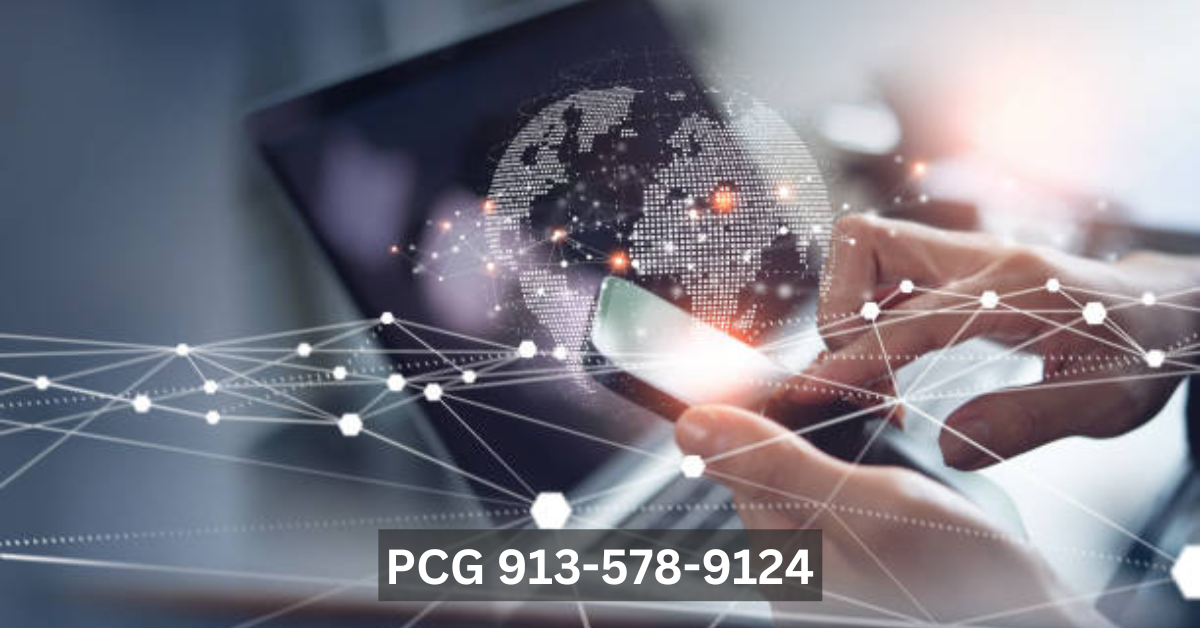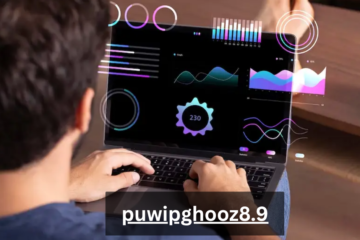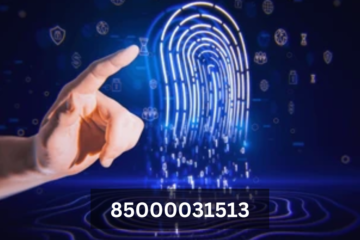In today’s digital age, it’s not uncommon for people to receive unexpected phone calls from unfamiliar numbers. One such number that has raised questions is PCG 913-578-9124, a phone number that has been associated with various telemarketing and potentially fraudulent activities. In this article, we’ll break down everything you need to know about this number, how to identify if it’s a scam, and most importantly, how to protect yourself.
PCG 913-578-9124 is a phone number that falls under the Kansas area code, specifically 913, which covers the Kansas City metropolitan area. Many people have received calls from this number, leading to confusion and concern about its legitimacy. Whether you’ve received a call, a text, or seen discussions online, understanding the nature of this number is crucial.
Why Are You Receiving Calls From This Number?
Telemarketing calls and legitimate businesses often use numbers like PCG 913-578-9124 to connect with potential customers. It could also be a result of someone in your area trying to reach you. But the number’s association with both telemarketing and possible scams means you need to be cautious when you pick up.
Overview of Area Code 913 (Kansas City Metropolitan Area)
The area code 913 is a geographic area code serving Kansas City, located in the state of Kansas. Many scammers exploit local area codes to increase the chances of the call being answered, as people tend to trust calls that appear local. This practice is known as caller ID spoofing.
Relevance of Identifying Phone Numbers in Today’s Digital Age
With increasing online activity and phone number spoofing, it’s vital to verify unknown callers before engaging with them. Tools like reverse phone lookup services and scam detection apps can be invaluable in identifying whether the number belongs to a legitimate business or if it’s potentially fraudulent.
The Role of PCG 913-578-9124 in Telemarketing and Customer Service
Telemarketers and customer service representatives often use numbers like PCG 913-578-9124 to reach potential clients. If you’ve recently expressed interest in a product or service, it’s possible the call is related to follow-up information or promotional offers. Telemarketing is a legal practice when conducted by legitimate businesses, and numbers from area code 913 could very well be part of these outreach efforts.
The Growing Use of Local Area Codes by Telemarketers
One of the reasons why area codes like 913 are commonly used is to increase the likelihood of the call being answered. People are more likely to pick up the phone when it’s from a local number, making it a favorable tactic for both telemarketers and scammers. While not all calls from local numbers are malicious, it’s crucial to verify the source to avoid falling for scams.
How Legitimate Companies Use Numbers Like PCG 913-578-9124 for Customer Outreach
Legitimate businesses use numbers like PCG 913-578-9124 for various purposes: from following up on inquiries to providing customer support. If the number belongs to a legitimate telemarketing company, they should provide a clear purpose for their call and offer easy options for opting out or obtaining further information.
Is PCG 913-578-9124 a Scam? How to Identify Suspicious Calls
Scams are widespread and scammers often target vulnerable individuals. PCG 913-578-9124 may be used in fraudulent schemes. Some signs that suggest a call is a scam include:
Pressure to act quickly: Scammers often create a sense of urgency.
- Too-good-to-be-true offers: Be wary of offers that promise things like easy money or exclusive deals.
- Requests for sensitive information: Legitimate businesses don’t ask for sensitive information, like Social Security numbers or bank details, via phone.
Recognizing Fraudulent Tactics: Urgency, Too-Good-to-Be-True Offers
Scammers often create high-pressure scenarios to manipulate their victims. If the person on the other end of PCG 913-578-9124 pressures you to make an immediate decision or share personal information, hang up immediately. A legitimate company will give you the time to review your options and make informed choices.
The Importance of Verifying the Source
Before engaging with any unknown caller, take the time to verify whether the number belongs to a legitimate business or organization. A simple reverse phone lookup can help you identify the caller’s identity. Tools like Google or apps like TrueCaller can assist in revealing whether PCG 913-578-9124 is linked to a telemarketing firm or reported as a scam.
What to Do If You Suspect a Scam from PCG 913-578-9124
If you suspect that PCG 913-578-9124 is involved in a scam, the safest course of action is to hang up immediately. Avoid engaging with the caller, as this can often lead to more aggressive tactics. If the call is concerning a potential debt or a financial issue, contact the company directly using verified contact information from their official website.
Reporting the Number to the FTC and Local Consumer Protection Agencies
If you’re convinced that the number is being used for fraudulent purposes, report it to the Federal Trade Commission (FTC). The FTC allows consumers to file scam reports, helping authorities track and investigate phone scams. Additionally, you can report the number to your local consumer protection agency, as they work to safeguard citizens from fraudulent activities.
How to Block Unwanted Calls and Protect Your Privacy
Most smartphones come equipped with options to block unwanted calls directly from the call log. You can also install call-blocking apps to prevent unwanted numbers like PCG 913-578-9124 from reaching you. Services such as Nomorobo, Hiya, and TrueCaller allow users to block numbers flagged as spam or scams.
Preventing Future Scams: Protecting Your Personal Information
Protecting your personal information is paramount. Avoid sharing sensitive details over the phone unless you’re 100% sure about the caller’s identity. When in doubt, hang up and reach out to the company directly using verified contact details. Additionally, always be mindful of what you post online, as scammers can use public information to tailor their pitch.
How to Recognize Common Scam Tactics
Scammers use common tactics like creating false urgency or offering things that seem too good to be true. They may also ask for personal data or financial information. Knowing these red flags can help you stay vigilant and avoid falling prey to phone fraud.
Using Privacy Settings on Social Media and Phones
To reduce the likelihood of being targeted by scammers, adjust your privacy settings on social media platforms. Keep your phone number private and only share it with trusted individuals or companies. Consider using a second phone number or a virtual number for non-essential purposes.
The Role of Call-Blocking Apps and Features on Smartphones
In today’s digital age, call-blocking apps have become an essential tool for protecting yourself against phone scams. Apps like Hiya and Nomorobo help filter out spam and scam calls by blocking known fraud numbers.
The Impact of Scams on Consumers: Financial and Emotional Consequences
Being scammed can have emotional consequences. Victims may feel embarrassed, violated, or stressed after falling for fraudulent schemes. It’s important to recognize these feelings and seek support, especially if you’ve lost money or personal information to scammers.
Real-Life Examples of Phone Scam Victims
Many people have shared their experiences of falling victim to phone scams, often related to fraudulent debt collection or fake lottery wins. These stories underscore the importance of vigilance when answering unknown numbers like PCG 913-578-9124.
The Financial Consequences of Fraudulent Calls
Financially, falling victim to scams can lead to loss of money, identity theft, and damaged credit scores. Scammers often convince individuals to send money via wire transfer or purchase gift cards to pay for supposed prizes or fees. Always be cautious if a caller asks for payments in unusual forms.
Understanding How Scammers Use Technology: Caller ID Spoofing and Other Tactics
Scammers frequently use caller ID spoofing to make their number appear local, like PCG 913-578-9124. This tactic tricks individuals into thinking the call is from a nearby business or friend, making them more likely to answer.
The Role of Caller ID Fraud in Scam Operations
Caller ID fraud is a common method used by scammers to deceive individuals. By mimicking local numbers, scammers can increase the chances of their call being answered. This deceptive tactic highlights the need for consumers to be proactive in verifying phone numbers.
Why Scammers Use Area Codes Like 913 to Increase the Likelihood of an Answer
Scammers often target individuals in specific geographic areas, like Kansas City, using the local area code (913) to make their calls seem more legitimate. Understanding the origins of area.
Legal and Regulatory Measures: How the FTC and FCC Combat Phone Scams
Both the Federal Trade Commission (FTC) and the Federal Communications Commission (FCC) play crucial roles in protecting consumers from phone scams. The FTC is responsible for investigating deceptive business practices, including scams, and it provides resources for consumers to report fraudulent activity. The FCC, on the other hand, regulates communication technologies and services to ensure that phone carriers are protecting consumers from unwanted and fraudulent calls. These agencies work together to enforce laws and impose penalties on those engaging in phone scams.
How These Agencies Help Consumers Avoid Scams
Both the FTC and FCC provide guidelines and tools to help consumers recognize and avoid phone scams. The FTC’s Consumer Information website offers advice on recognizing common scam tactics and reporting fraudulent calls. The FCC’s Robocall Blocking initiative has led to the development of technologies to block robocalls and scam calls. Additionally, the FTC keeps a national Do Not Call Registry to limit unsolicited calls and prevent telemarketing abuse.
The Legal Frameworks for Reporting and Prosecuting Phone Scams
The Truth in Caller ID Act and the Telephone Consumer Protection Act (TCPA) are two key pieces of legislation that help protect consumers from phone scams. These laws specifically address issues like caller ID spoofing, robocalls, and unwanted solicitation, and provide a framework for legal actions against scammers. By reporting suspicious numbers like PCG 913-578-9124, consumers help authorities track and stop scams.
How to File a Complaint: Reporting PCG 913-578-9124 and Other Suspicious Numbers
If you suspect PCG 913-578-9124 is linked to a scam, filing a complaint with the FTC is an important step in the process of stopping fraud. Visit the FTC’s official website to report your experience. You’ll be asked to provide details about the call, such as the number, the nature of the conversation, and any personal information you may have shared. The FTC will use this data to track trends in scam activity and initiate investigations.
How to Report a Suspicious Number to Local Authorities
If the scam is particularly concerning or if you’ve shared personal information, you should report it to local law enforcement. Many cities have dedicated consumer protection offices, and your state’s attorney general’s office may also be involved in prosecuting phone scam cases. Reporting these numbers helps ensure that the appropriate legal action is taken.
Other Resources for Reporting Fraud and Telemarketing Abuse
In addition to the FTC and local authorities, you can report scam calls to several other organizations, such as:
The Better Business Bureau (BBB), which provides resources to help businesses and consumers avoid fraudulent schemes.
The National Do Not Call Registry, which allows consumers to opt out of unsolicited telemarketing calls.
Conclusion
When dealing with PCG 913-578-9124 or any unfamiliar number, the best approach is to remain cautious. Be aware of common signs of scams, like too-good-to-be-true offers and requests for personal information. Always verify the source of the call, and if it feels suspicious, don’t hesitate to hang up.
Protecting your privacy and personal data is essential in today’s connected world. Utilize call-blocking apps, reverse phone lookup tools, and privacy settings on your devices to safeguard yourself against unwanted calls and potential fraud.
Frequently Asked Questions
What should I do if I received a call from PCG 913-578-9124?
If you’re unsure about the call, hang up and perform a reverse phone lookup to verify whether it’s associated with a legitimate company. If you suspect fraud, report it to the FTC.
How can I block unwanted calls from PCG 913-578-9124?
You can block the number directly on your smartphone or use a call-blocking app like Nomorobo or TrueCaller to prevent future calls.
How do I know if a telemarketing call is legitimate or a scam?
Watch for red flags like requests for personal information, pressure to make quick decisions, or too-good-to-be-true offers. Always verify the company’s identity.
What can I do to protect myself from future phone scams?
Consider using call-blocking apps, privacy settings on your devices, and adding your number to the National Do Not Call Registry. Always verify callers before providing any personal details.
Can I report a scam call to the FTC?
Yes, the FTC allows consumers to report scam calls. This helps track scam activity and protect others from falling victim to fraud.
Stay in touch to get more updates & alerts on TGTube! Thank you



